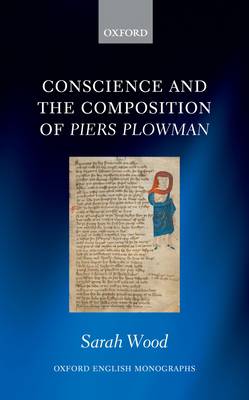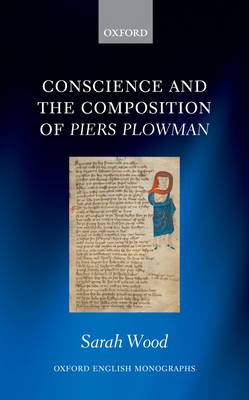
- Afhalen na 1 uur in een winkel met voorraad
- Gratis thuislevering in België vanaf € 30
- Ruim aanbod met 7 miljoen producten
- Afhalen na 1 uur in een winkel met voorraad
- Gratis thuislevering in België vanaf € 30
- Ruim aanbod met 7 miljoen producten
Zoeken
Conscience and the Composition of Piers Plowman
Sarah (Lecturer in English, University College London) Wood
€ 225,45
+ 450 punten
Omschrijving
By showing how Langland transformed Conscience as he composed the A, B and C texts of Piers Plowman, Sarah Wood offers a new approach to reading the serial versions of the poem. While the three versions have customarily been read in parallel-text formats, she demonstrates that Langland's revisions are newly comprehensible if read in sequence.
Specificaties
Betrokkenen
- Auteur(s):
- Uitgeverij:
Inhoud
- Aantal bladzijden:
- 200
- Reeks:
Eigenschappen
- Productcode (EAN):
- 9780199653768
- Verschijningsdatum:
- 3/05/2012
- Uitvoering:
- Hardcover
- Afmetingen:
- 145 mm x 216 mm
- Gewicht:
- 382 g

Alleen bij Standaard Boekhandel
+ 450 punten op je klantenkaart van Standaard Boekhandel
Beoordelingen
We publiceren alleen reviews die voldoen aan de voorwaarden voor reviews. Bekijk onze voorwaarden voor reviews.








